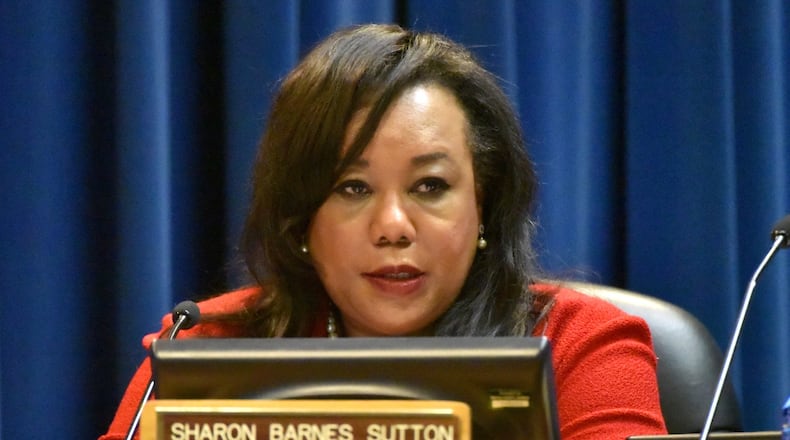The case against former DeKalb County Commissioner Sharon Barnes Sutton will soon be in a jury’s hands.
Barnes Sutton, whose trial on federal extortion and bribery charges began last week, chose not to testify on her own behalf Tuesday morning. Her team of public defenders did not present evidence or witnesses, clearing the way for closing arguments to begin.
The jury was expected to begin deliberations after lunch.
Barnes Sutton, who appeared to have about a dozen supporters in court on Tuesday, is accused of soliciting bribes from a county contractor in 2014. During the trial that started last week in U.S. District Court in Atlanta, prosecutors from the Department of Justice’s public integrity unit presented evidence that they say showed the former commissioner asking Reginald Veasley for $500 a month.
Veasley was a subcontractor on a multimillion contract tied to work on DeKalb County’s Snapfinger Creek Advanced Wastewater Treatment Plant. Barnes Sutton allegedly extorted Veasley because she was upset another vendor — Veasley’s former employer — was not included on the project.
With help from Morris Williams, a county staffer who was wearing a wire after being flipped by the FBI, Veasley ultimately paid Barnes Sutton a total of $1,000.
“This was a shakedown, plain and simple,” prosecutor Victor Salgado said Tuesday.
Barnes Sutton’s team of public defenders, meanwhile, contended that the payments were not bribes but contributions to an “informal legal defense fund.”
One of Barnes Sutton’s attorneys, Mildred Dunn, had asked Monday afternoon for the judge to acquit her client altogether. She argued that, among other things, the prosecution hadn’t provided sufficient evidence that a quid pro quo existed or that Veasley was fearful of the repercussions if he didn’t pay up.
Judge Mark H. Cohen said the government had made an ample enough case for it to proceed to the jury, and they would decide if the accusations had been proven beyond a reasonable doubt.
If convicted, Barnes Sutton could be looking at multiple years in prison.
Caren Morrison is an associate professor of law at Georgia State University and a former federal prosecutor in New York. She is not involved in the Barnes Sutton case but took a look at the charges and the potential sentencing guidelines at the request of The Atlanta Journal-Constitution.
She estimated that the sentencing range for Barnes Sutton would be around 33 to 41 months, possibly a little higher. Such guidelines are advisory and Cohen would have discretion to sentence outside of the recommended range.
About the Author
Keep Reading
The Latest
Featured




